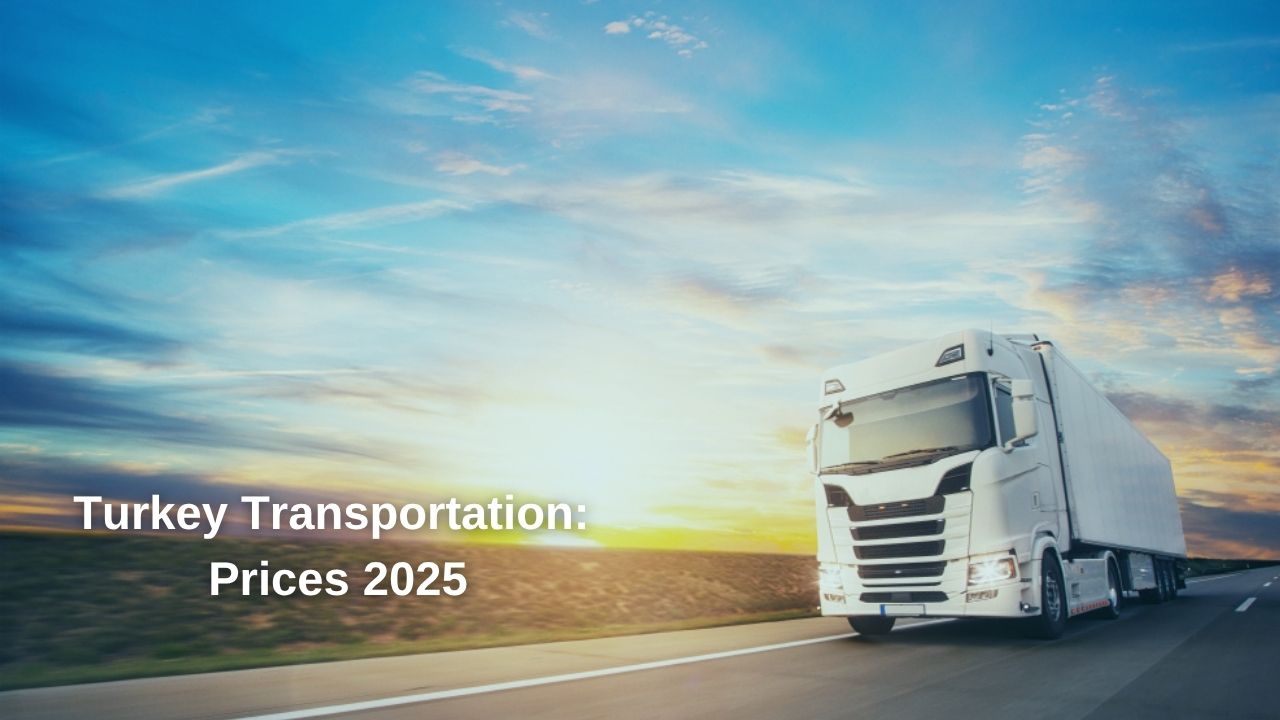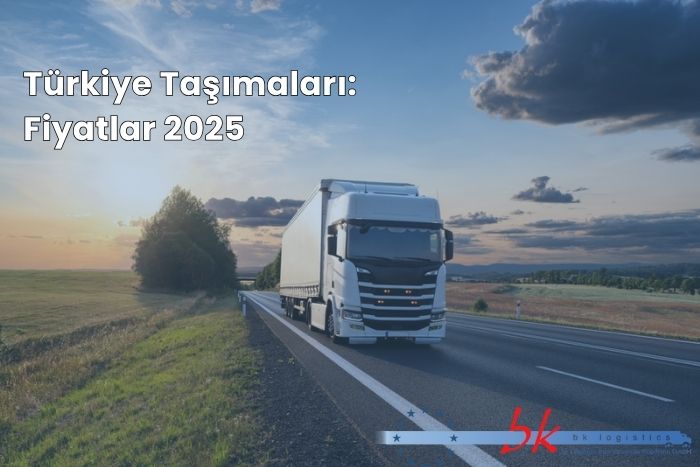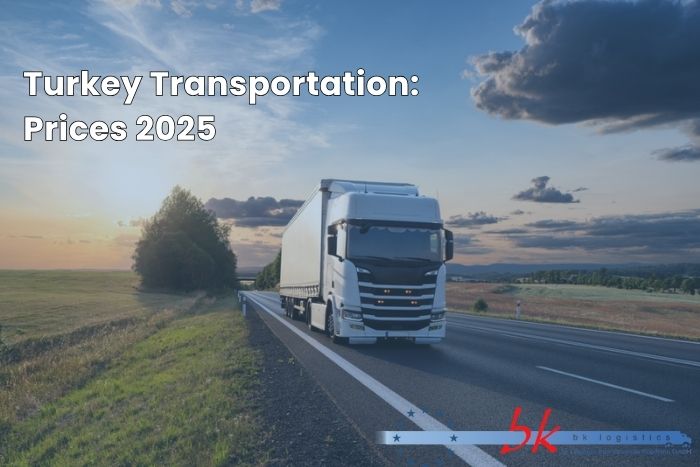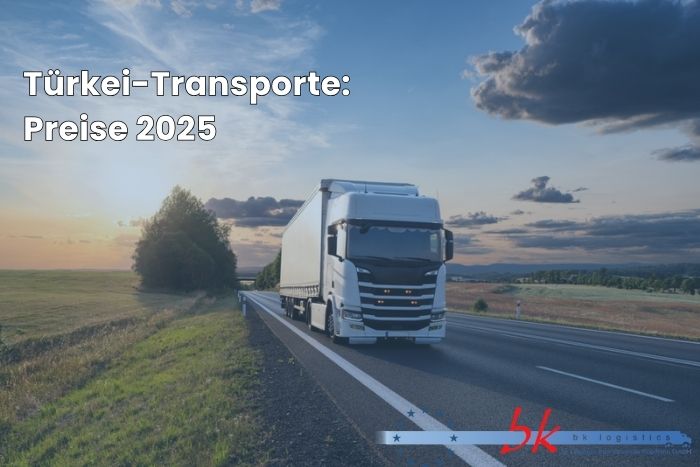News
Turkey Transports: Prices 2025
Table of Contents
- How Have Transportation Prices from Turkey to Europe Changed in 2025?
- What Are the Factors Affecting Prices in Turkey's Transportation Sector in 2025?
- How Much Are Road Transportation Costs from Turkey to Germany in 2025?
- How Are Maritime Transportation Prices Shaping Up in Turkey's Logistics for 2025?
- Price Comparison of Full and Partial Load Transportation from Turkey to Europe
- How to Choose the Most Suitable Transportation Companies for Turkey in 2025?
How Have Transportation Prices from Turkey to Europe Changed in 2025?
In 2025, transportation prices from Turkey to Europe have experienced significant changes due to various factors. Global economic fluctuations and rising energy costs have been the primary drivers of increased transportation costs. In particular, the rise in fuel prices has directly led to cost increases in road transportation. Volatility in exchange rates has also impacted pricing.
New regulations and tightened border controls in European countries have extended transportation times, resulting in additional costs in logistics processes. The intensity and additional procedures in customs operations have created challenges in transportation planning, contributing to higher operational costs.
On the other hand, digitalization and advancements in logistics technologies have enabled more efficient operations, helping to reduce some cost items. Smart tracking systems and route optimization have improved fuel consumption and time management. Overall, transportation prices from Turkey to Europe have risen in 2025. Companies planning transportation should consider these changes when managing budgets and processes.
What Are the Factors Affecting Prices in Turkey's Transportation Sector in 2025?
In 2025, several key factors affect prices in Turkey’s transportation sector. Primarily, fluctuations in energy prices directly lead to changes in transportation costs. Fuel expenses constitute a significant portion of transportation costs, and increases are reflected in prices. Volatility in exchange rates is another critical factor affecting pricing in the sector. Since the import costs of equipment and vehicles used in Turkey are tied to foreign currency, exchange rate changes impact transportation fees.
Changes in legal regulations, control mechanisms at border crossings, and customs practices also shape prices. In particular, stricter trade regulations with Europe extend transportation times, increasing operational costs. Additionally, improvements in logistics infrastructure and technological investments enhance efficiency, reducing some cost items, but they have a balanced impact on overall prices.
Changes in transportation demand and market dynamics are also among the significant factors affecting prices. Prices rise during high-demand periods, while competitive markets strive to maintain price balance. All these factors play a decisive role in shaping prices in Turkey’s transportation sector in 2025.

How Much Are Road Transportation Costs from Turkey to Germany in 2025?
In 2025, road transportation costs from Turkey to Germany vary depending on several factors. Fuel prices, exchange rates, and border crossing procedures play a significant role in determining costs. Fuel expenses account for a large portion of transportation costs, and global market fluctuations directly affect prices. Exchange rate movements impact vehicle and equipment maintenance costs as well as customs fees.
New regulations and tightened border controls in Germany and other EU countries extend transportation processes, increasing operational costs. Congestion and additional procedures in customs operations require logistics companies to be more flexible in their planning. As a result, driver costs and vehicle usage times also increase.
On the other hand, route optimization and advancements in logistics technologies help keep costs under control. Smart tracking systems reduce fuel consumption and shorten delivery times. Overall, road transportation costs from Turkey to Germany have increased in 2025. Companies planning transportation should consider these dynamics when budgeting and organizing operations.
How Are Maritime Transportation Prices Shaping Up in Turkey's Logistics for 2025?
In 2025, maritime transportation prices in Turkey’s logistics are shaped by various economic and sectoral factors. Global trade fluctuations and rising energy costs directly impact maritime transportation fees. The increase in fuel expenses leads to higher costs for container transportation. Additionally, global imbalances in container supply contribute to price increases.
Customs operations and congestion in port services are also significant factors increasing transportation costs. Investments in port infrastructure and technological advancements in Turkey improve operational efficiency but are insufficient to prevent overall price increases. Regulations and changes in logistics procedures in Europe and other destinations extend transportation times, raising costs.
Digitalization and automation applications have the potential to reduce operational costs. Smart tracking systems and optimized route planning help reduce fuel consumption and waiting times. Considering all these dynamics, maritime transportation prices in Turkey are generally on the rise in 2025. Stakeholders in the sector need to adapt to these changes for effective cost management.
Price Comparison of Full and Partial Load Transportation from Turkey to Europe
In transportation from Turkey to Europe, the prices of full load and partial load options differ. Full load transportation refers to a vehicle or container being fully loaded with goods from a single sender. In this type of transportation, costs are generally calculated based on the volume and weight of the load. Transporting the entire load at once simplifies operational processes and shortens transportation time, making full load transportation more economical, especially for large-volume shipments.
In partial load transportation, a vehicle or container carries goods from different senders together. This method is suitable for small and medium-sized loads. Partial load transportation is operationally more complex due to the distribution of loads to different recipients. Longer processes and logistics management challenges often result in higher costs compared to full load transportation.
When comparing prices, factors such as delivery time, urgency, and load safety should also be considered. Full load transportation offers a faster and safer option, while partial load increases flexibility and distributes costs. Regardless of the chosen method, these differences should be considered in transportation planning.
How to Choose the Most Suitable Transportation Companies for Turkey in 2025?
In 2025, selecting the most suitable transportation company for Turkey’s transportation is the foundation of successful and seamless logistics processes. First, the company’s range of services and experience in transportation should be evaluated. Expertise in various transportation methods, such as road, sea, or air cargo, ensures tailored solutions for specific needs.
References and customer reviews provide valuable insights into the company’s reliability and service quality. Additionally, the company’s certifications and legal permits for international transportation should be reviewed. These documents indicate that the company complies with industry standards.
When comparing price offers, not only the lowest price but also the scope of services and additional costs should be considered. Transparent and detailed pricing reduces the risk of unexpected costs. Companies with technological infrastructure manage operations more efficiently with tracking systems and digital solutions.
Flexibility and fast communication in transportation planning are crucial to preventing potential disruptions. A well-chosen transportation company ensures that shipments from Turkey reach their destinations on time and safely. Making choices based on these criteria enhances the efficiency of logistics processes.



